Search
Search Results
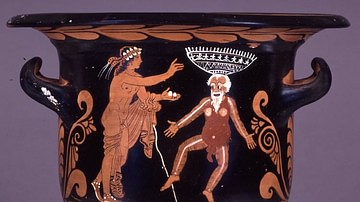
Definition
Ancient Greek Comedy
Ancient Greek comedy was a popular and influential form of theatre performed across ancient Greece from the 6th century BCE. The most famous playwrights of the genre were Aristophanes and Menander and their works and those of their contemporaries...
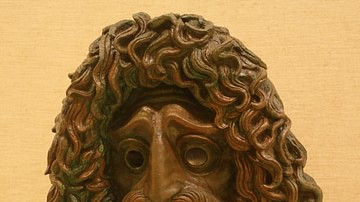
Definition
Ancient Greek Tragedy
Greek tragedy was a popular and influential form of drama performed in theatres across ancient Greece from the late 6th century BCE. The most famous playwrights of the genre were Aeschylus, Sophocles, and Euripides and many of their works...
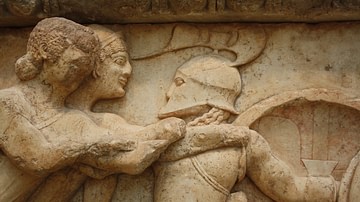
Definition
Ancient Greek Warfare
In the ancient Greek world, warfare was seen as a necessary evil of the human condition. Whether it be small frontier skirmishes between neighbouring city-states, lengthy city-sieges, civil wars, or large-scale battles between multi-alliance...
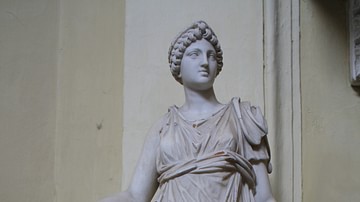
Definition
Ancient Greek Medicine
In ancient Greek medicine illness was initially regarded as a divine punishment and healing as, quite literally, a gift from the gods. However, by the 5th century BCE, there were attempts to identify the material causes for illnesses rather...
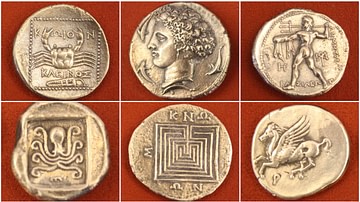
Definition
Ancient Greek Coinage
The coinage of ancient Greece has given us some of the most recognisable images from antiquity as they were stamped with designs to proudly declare the identity of the city which minted them and guarantee their value. One of the great archaeological...

Definition
Indo-Greek
The first Indo-Greek kingdom appeared circa 190 BCE may when the Greco-Bactrian king or (general for his father) Demetrios was busy in India, when his Indian possessions were divided between several kings, probably firstly in order to better...

Definition
Greek Fire - The Byzantines' Seceret Weapon
Greek Fire was an incendiary weapon first used in Byzantine warfare in 678 CE. The napalm of ancient warfare, the highly flammable liquid was made of secret ingredients and used both in catapulted incendiary bombs and sprayed under pressure...
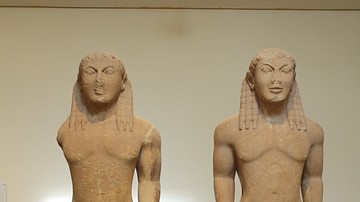
Definition
Greek Archaic Period
The Greek Archaic Period (c. 800-479 BCE) started from what can only be termed uncertainty, and ended with the Persians being ejected from Greece for good after the battles of Plataea and Mykale in 479 BCE. The Archaic Period is preceded...

Video
Norse Mythology: an Introduction to the Norse Gods, Goddesses, Myths and Legends
Norse mythology was the belief of the people of Scandinavia around the Viking age between around 790 and 1100 CE. It consisted of cosmology or story of the beginning of the universe, nine realms of the world tree Yggdrasil and the end of...

Video
Fenrir: the GIANT Wolf Even Gods Feared - Norse Mythology Explained
Welcome to Mythology Explained. Today, we’re discussing Fenrir: the biggest, baddest wolf in all of Norse mythology. And there were many mighty wolves in Norse Mythology: there was Geri and Freki, Odin’s wolves; There was Skoll and Hati...